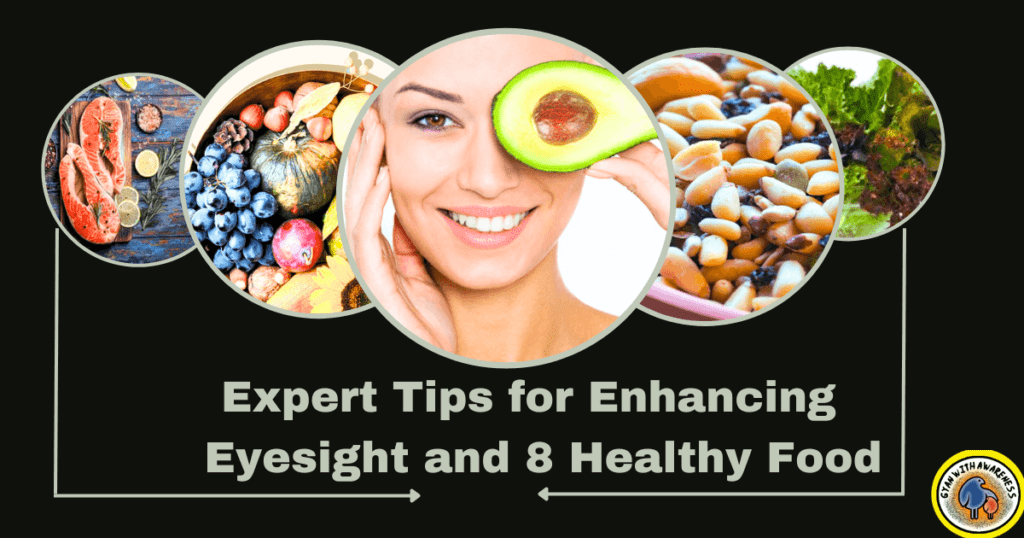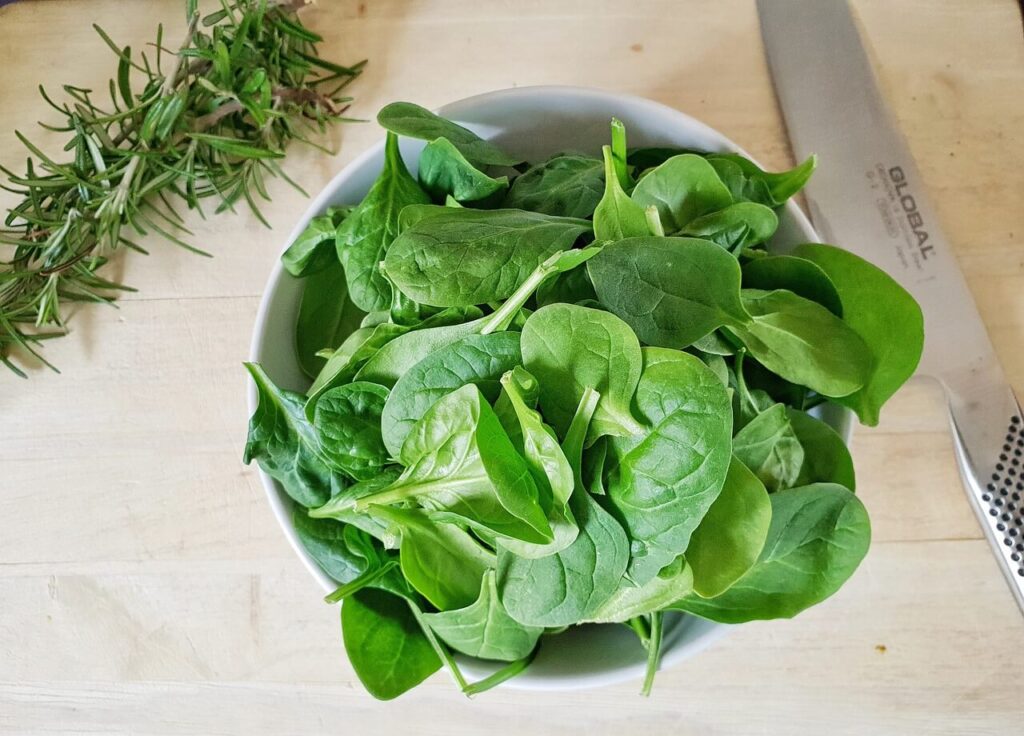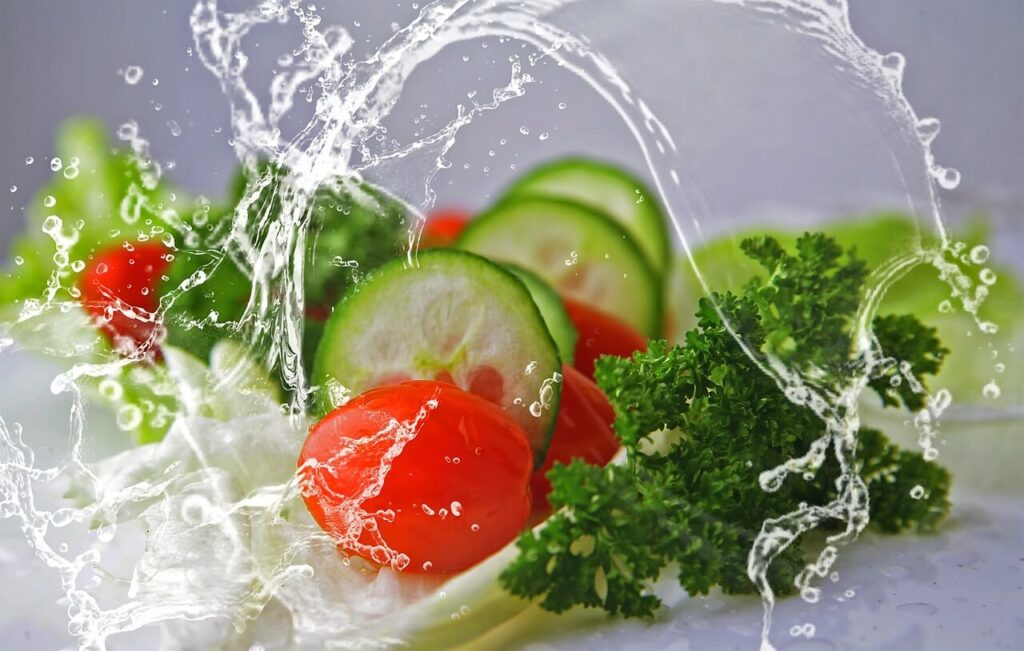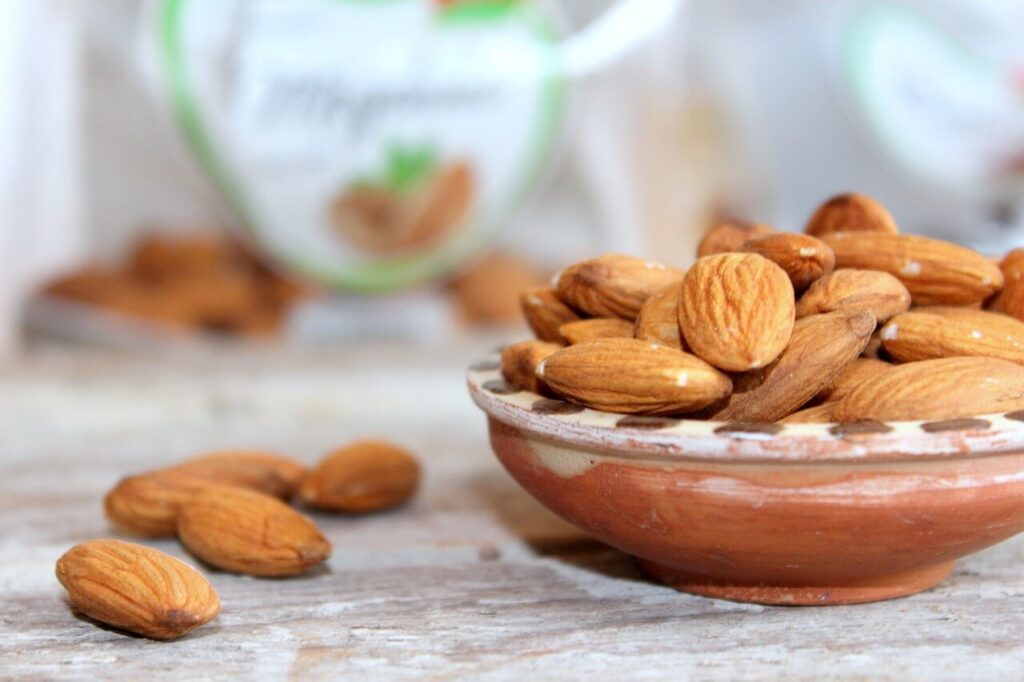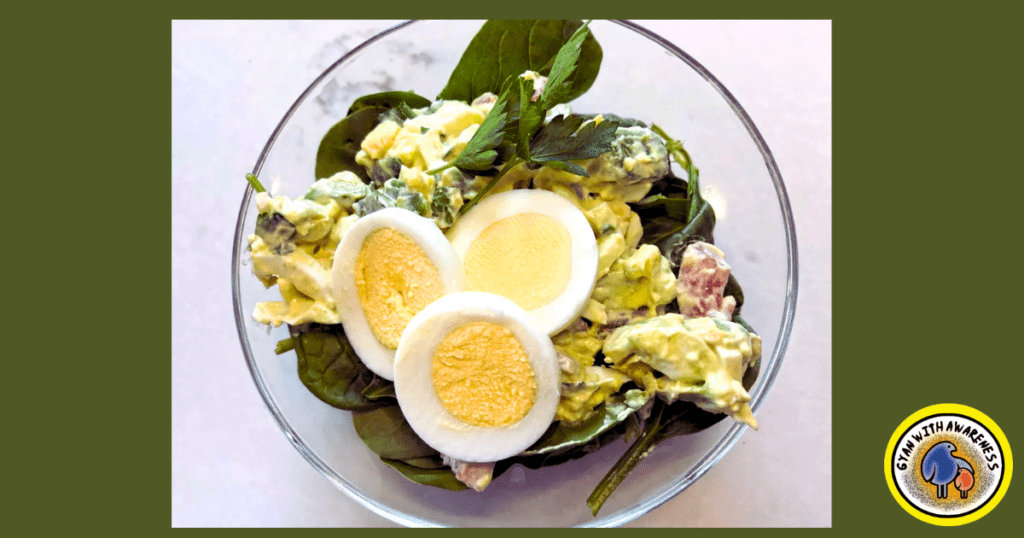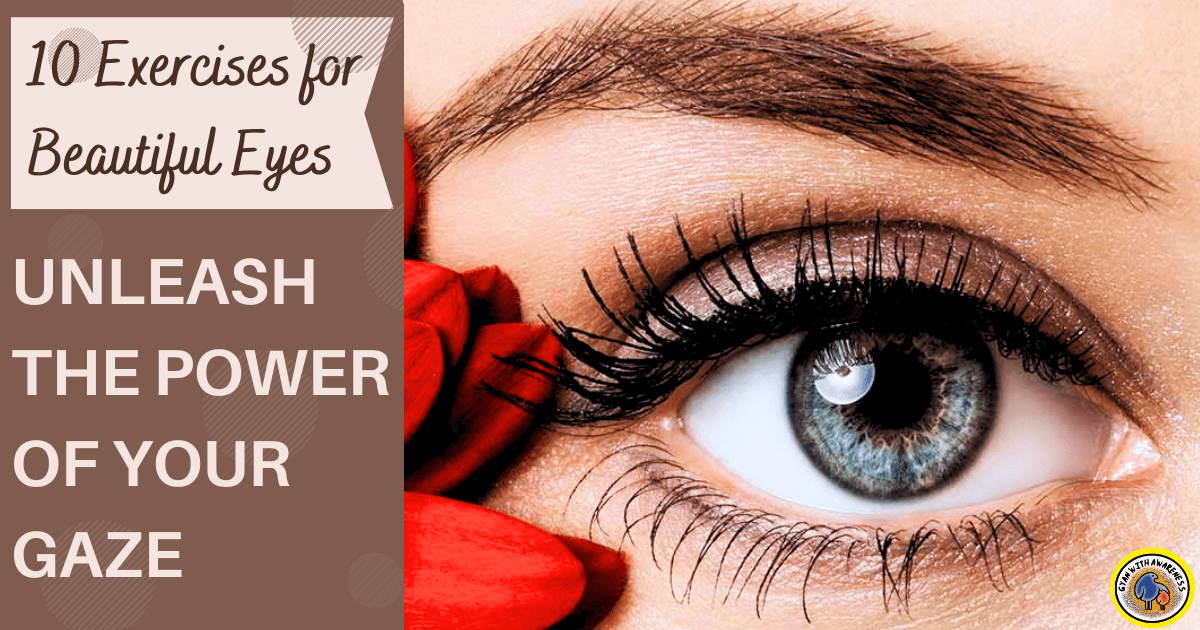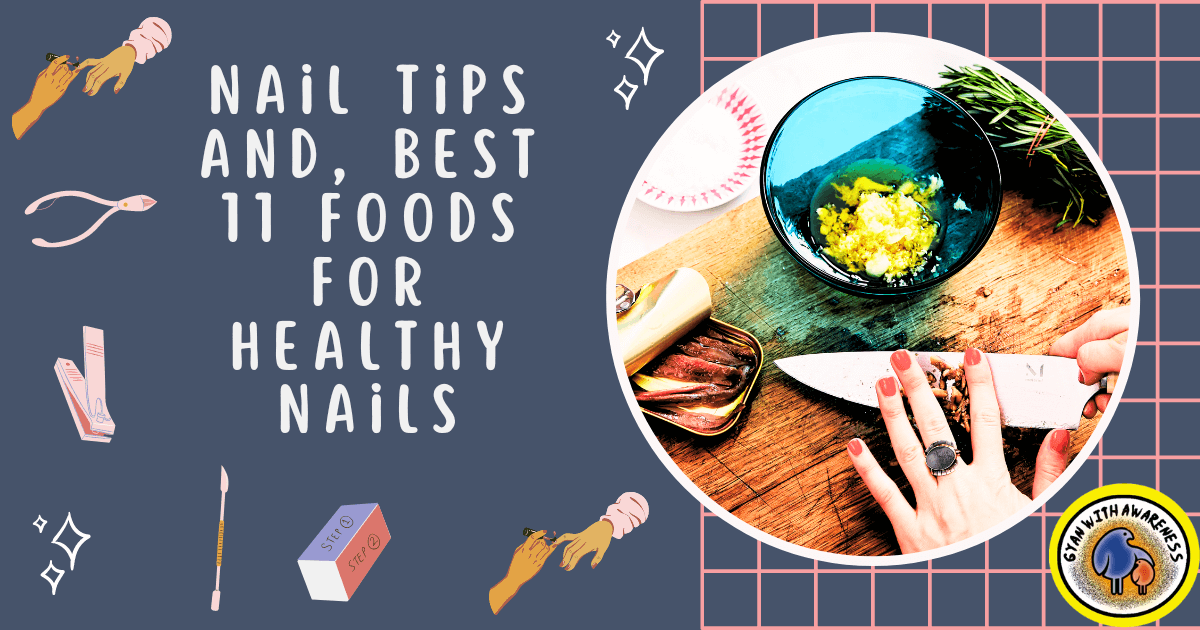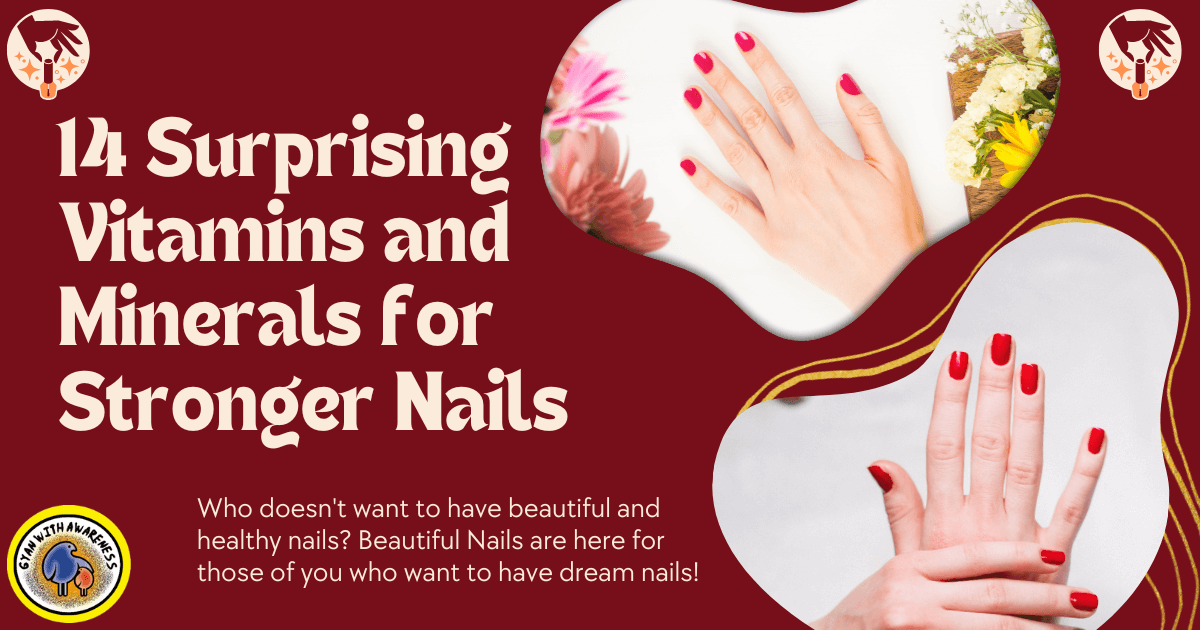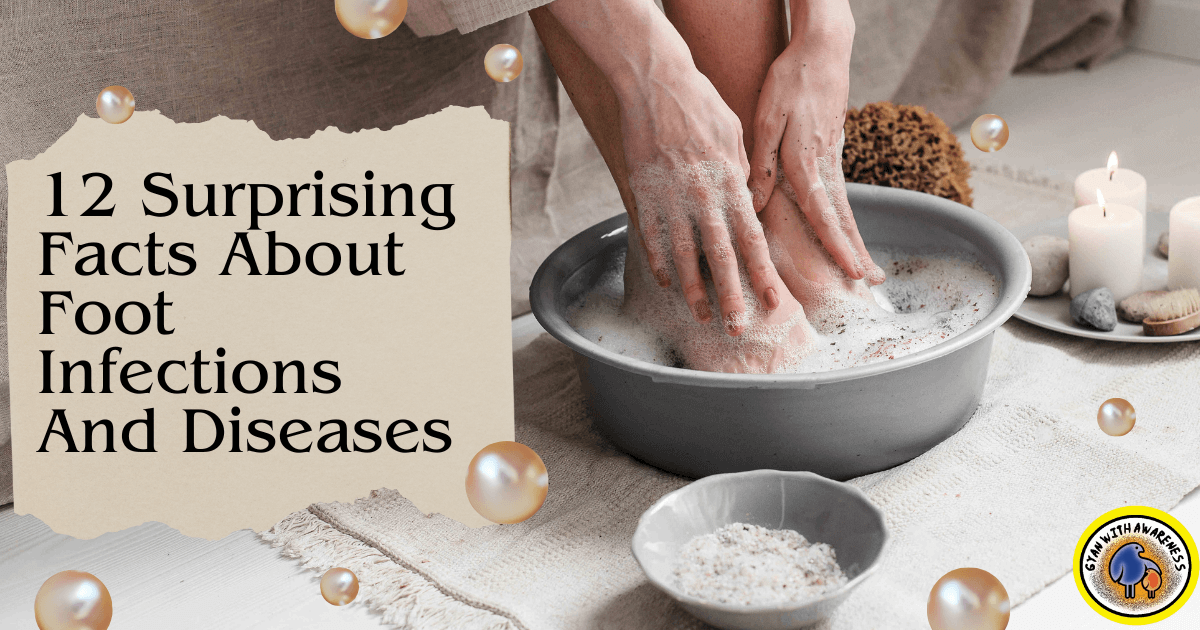Hello, everyone !! You all are welcome to this blog. In this article, we find the solution to Healthy Eyesight. Here the description of Food For Eyesight Improvement is given. Eyesight’s Healthy Food is easily available and very tasty to eat. Weak Eyesight is very common nowadays so here Healthy Food For Eyesight, a list and sources are given. Taking care of our overall health is always a top priority for us. We engage in various experiments and routines to maintain a great and dashing appearance.
A balanced and nutrient-rich diet plays a vital role in preserving and promoting good eyesight. The eyes, like any other organ, require specific vitamins, minerals, and antioxidants to function optimally and to ward off potential age-related or lifestyle-induced damage.
Vitamin A, found in foods like carrots, sweet potatoes, and leafy greens, is pivotal for maintaining clear vision, particularly in low-light conditions. It helps form a crucial pigment called rhodopsin in the eyes, which aids in night vision. Similarly, vitamin C, abundant in citrus fruits, strawberries, and bell peppers, provides a shield against cataracts and age-related macular degeneration, conditions that can lead to vision impairment.
However, amidst our endeavors, we tend to overlook a crucial aspect of our captivating personality – our eyes. The eyes, being an integral part of the human body, often fall victim to neglect due to our busy daily schedules. Eyesight or – means, farsightedness, and the minus sign (-) means nearsightedness.
Eyesight +or – means a lot when we talk about healthy food Because food directly affects our Eyesight and – conditions Fortunately, there are certain common foods readily available in every middle-class family’s kitchen that can naturally improve and enhance the health of our eyes and eyesight, without requiring us to spend extra money on specialized treatments or supplements. These foods consist of easily accessible vegetables and fruits that possess remarkable qualities beneficial for our eyesight.
Zeaxanthin and lutein, which are found in large quantities in eggs, kale, and spinach, are like the sunglasses of nature. They protect the eyes from harm by filtering harmful, high-energy blue light. The structural integrity of the retina is preserved and inflammation is decreased by omega-3 fatty acids, which are abundant in rich foods like walnuts and salmon.
On the other hand, refraining from smoking and abstaining from dangerous substances like excessive alcohol help to considerably preserve healthy vision. When indulged in, these habits might hasten the development of eye diseases such macular degeneration and cataracts.
In summary, the basic elements needed for optimum eye health are provided by a diet high in fruits, vegetables, whole grains, lean proteins, and healthy fats. People can protect their vision and benefit from clear, vibrant eyesight throughout their lives by making consciously healthy decisions.
Furthermore, maintaining steady blood sugar levels through a balanced diet is crucial in preventing diabetic retinopathy, a complication that arises from uncontrolled diabetes and can lead to vision loss. Additionally, proper hydration ensures the eyes remain adequately lubricated, reducing the risk of dryness and irritation.
Important Food For Healthy Eyesight-
Here’s some fruits and vegetables are given below which can make our eyesight healthy and more accurate. One thing that is very important to know is that eating regular healthy food at a fixed time is also very important for beautiful and perfect eyesight.
🥕 Healthy eyesight food “Carrot”-
Carrots are beneficial to our eyes. It is high in the antioxidant vitamin A plus beta carotene. Vitamin A is critical to our health. It also comprises vitamin K, vitamin C, lutein, folic acid, vitamin E, potassium, and phosphorus.
Carrots, with their bright orange hues, are high in beta-carotene, a precursor of vitamin A. Vitamin A is essential for keeping strong vision and preventing night blindness. Including carrots in our diet can supply the nutrients we need to maintain our eye health.
🌿Healthy eyesight food “Spinach”-
A type of leafy green vegetable that’s abundant in mineral compounds including the pigments lutein and zeaxanthin, which are antioxidants that enhance eye health. These nutrients aid in defending our eyes from ultraviolet (UV) exposure and reduce the risk of macular degeneration as we age. Eating spinach has advantages for our eye health. This leafy green vegetable is abundant in a variety of nutrients, including antioxidants A, C, and K1, vitamin Folic acid, iron in combination, and calcium. When ingested, it nourishes every system in the body.
🍀 Healthy eyesight food “Green Vegetables”-
It is also called leafy Greens. It can be eaten in raw form like in a salad form, some examples of green veggies are cilantro, basil, parsley, chives, and rosemary. These all are very rich in vitamins and minerals.
🍊 Healthy eyesight food “Oranges”–
Oranges, which are high in vitamin C, have a plethora of eye health benefits. Vitamin C is necessary for the health of the blood vessels in the eyes and the prevention of cataracts. Consuming oranges daily can help to improve the general health of our eyes.
Read More: 7 Diabetes Symptoms You Never Knew Existed: A Wake-Up Call
Healthy eyesight food “Almonds”-
It is well-known for its crunchy texture and delicious taste, and it is high in vitamin E. This vitamin functions as an antioxidant, protecting the eyes from oxidative stress and aging. A handful of almonds in our regular diet can bring considerable eye advantages.
🐠 Healthy eyesight food “Fish”-
Omega-3 fatty acids are abundant in fish, particularly salmon, tuna, and mackerel. These good fats are essential for maintaining the structural integrity of the eyes and promoting correct visual development. Regular consumption of fish can help minimize the incidence of dry eyes and age-related eye disorders.
🥚Healthy eyesight food “Eggs and Liver”-
Liver and eggs are other sources of healthy food that might help our eyes. The liver contains vitamin B, iron, phosphorus, and vitamin A. Similarly, an egg is a good source of protein. It improves the health of our eyes.
🍃Healthy eyesight food “Sprouts” –
Sprouts are high in nutrients. They make it incredibly easy to improve our vision and keep our eyes healthy. It also helps with blood sugar regulation, heart health, and digestion. Sprouts come in a variety of types, including vegetable sprouts such as broccoli and Alfalfa. Grain sprouts, which include Mung Bean, Kidney Bean, and Black Bean, are another popular type of sprout.
Benefits of Consuming Nutritious Foods
Enhancing Physical Health:
Incorporating a variety of fruits, vegetables, whole grains, lean proteins, and low-fat dairy products into your diet ensures that your body receives essential nutrients, vitamins, and minerals. These nutrient-rich foods support the proper functioning of organs, strengthen the immune system, and aid in the prevention of chronic diseases.
Increased Energy:
Healthy meals, in particular those high in complex carbohydrates, provide a consistent and sustained release of energy throughout the day. This aids in the maintenance of stable blood sugar levels, avoiding energy crashes and promoting consistent energy levels. Individuals benefit from increased productivity, increased focus, and an overall sense of vitality as a result.
Weight Management:
Including nutritious foods in our diet is essential for weight management. Healthy foods have fewer calories, saturated fats, and added sugars while having a higher fibre content. This combination aids in appetite control, promoting feelings of fullness, and maintaining a healthy weight. A balanced diet also promotes healthy metabolism, which aids in weight loss or maintenance goals.
Improved Mental Health:
There is a strong link between diet and mental health, according to research. Foods high in nutrients, particularly omega-3 fatty acids, vitamins B and D, and antioxidants, have been linked to a lower risk of depression, anxiety, and cognitive decline. A healthy diet can also improve mood, promote better sleep patterns, and improve overall brain function.
Long-Term Health and Ageing:
Consuming healthy foods regularly can have long-term health benefits and help us age gracefully. Antioxidants found in fruits and vegetables protect our cells from free radical damage, lowering the risk of age-related diseases. Proper nutrition also supports overall longevity and quality of life by promoting healthier skin, stronger bones, and a well-functioning digestive system.
Exercises that can improve our Eyesight –
If we are talking about the beauty of our eyes, we should always remember a few exercises. Exercise is a boon for us. It only not improves our body structure, but it also makes our health healthy and positive. Here we are talking about a few exercises that are very good for our eyesight and enhance the beauty of our eyes. These exercises are given below:
Bouncing Ball Exercise –
In this exercise, you have to bounce the ball with one hand and catch it with the other hand. The motion of the ball should be in a shape-like movement and you must follow the movement of the ball with your eyes.
Pen exercise –
Hold the pen at arm’s length and concentrate on it. Bring the pen closer to your nose slowly. Move the pen away from your eyesight until it is no longer in focus. You can do this workout 10 to 15 times per day. You can also conduct this exercise before and after reading or working on a computer or laptop. It is also beneficial to children. Parents should encourage their children to perform this activity at least twice a day.
Conclusion-
We should wear sunglasses while going outside in sunny weather. We must wash our eyes before going to bed. Apply potato slices or cucumber slices on your eyes, When you feel pain in your eyes or dark circles on them. Food and exercise are the best ways to cure or improve our eyes, but proper sleep and a controlled workload are also very important for the beauty of our eyes. The main reason for Eye Pain and weak eyesight is our ignorance and the overload of work given to the eyes. So always remember to take care of the eyes in a proper way, but if you have more problems then contact the Ophthalmology doctor.
👉FAQ:
📌 Which substance has advantages for the eyes?
One of the most essential nutrients for sustaining healthy eye health is the antioxidant vitamin A. It is critical for the healthy functioning of the retina and plays an important role in sustaining vision. A lack of nutrients can cause blurred vision at night and dry eyelids.
📌 Does the antioxidant C assist with vision?
It serves to preserve the health of the blood veins in the eyes. Although consuming vitamin C does not swiftly cure a lack of vision, it does aid in the maintenance of healthy eyes and the prevention of certain eye disorders.
📌 How eyesight can be improved?
Here are some tips –
Protect your eyes from UV rays.
Practice good eye hygiene.
Take breaks from screen time.
Get regular eye check-ups.
Exercise regularly.
📌 What foods can improve eye vision?
A diet that is well-balanced and rich in essential nutrients can help tremendously in maintaining and improving eye vision. Foods high in vitamins A, C, and E, as well as antioxidant-rich foods like lutein and zeaxanthin, are very beneficial for the health of the eyes.
Clarity of vision is aided by vitamin A, particularly in low light. Sharp vision is made possible by its support for the eyes’ conversion of light into a signal the brain can comprehend. A great source of vitamin A is the beta-carotene that may be found in foods like carrots, sweet potatoes, and leafy greens.
As a strong antioxidant, vitamin C shields the eyes from the harm that free radicals can cause, including cataracts and age-related macular degeneration. Rich sources of vitamin C, such as bell peppers, strawberries, and citrus fruits, enhance overall eye health.
Vitamin E additionally helps eye health by protecting cells from damage and enhancing the health of the blood vessels in the eyes. Nuts, seeds, and leafy greens are excellent dietary sources of vitamin E.
Including a variety of these nutrient-dense foods in one’s diet can go a long way in promoting and preserving good eye vision. Additionally, maintaining a balanced and wholesome diet supports overall health and well-being, contributing to a higher quality of life. Consulting with a healthcare professional for personalized dietary recommendations based on individual health needs is always advisable.
📌 What are the signs of vision problems?
Different manifestations of vision issues might be crucial clues that something may be wrong with one’s vision. A typical symptom that makes it challenging to see fine details clearly is blurred or foggy vision. This may make it difficult to read or recognize faces, for example. Another clear sign is difficulty concentration, particularly when switching between different distances. When switching from close-up to distant activities, people could struggle to maintain clear vision.
Common symptoms include eye discomfort and strain, especially after prolonged durations of visual focus. This frequently causes headaches, especially for people who strain their eyes while reading, using digital devices, or performing challenging jobs. Double vision, in which a person perceives two pictures rather than one, is a blatant sign of a vision problem. Squinting is a reaction that occurs naturally to try and increase attention by constricting the eye aperture.
Night blindness, the inability to see clearly in low-light conditions, is a significant concern and may be indicative of underlying eye problems. Light sensitivity, where even normal lighting levels cause discomfort or pain, can also signal potential issues. Color blindness, the inability to distinguish between certain colors, is another distinct sign.
Small floaters (specks or threads) or flashing lights in the visual field may be a sign of retinal problems. Peripheral vision changes, side or peripheral vision loss, and rapid changes in vision should all be addressed seriously because they could indicate more severe underlying disorders. Any of these warning signals should prompt an immediate appointment with an eye care specialist for a thorough examination, allowing for early intervention and the proper therapy to protect and improve one’s vision.
What are the 4 most common eye problems?
Refractive Errors: This category includes conditions like nearsightedness (myopia), farsightedness (hyperopia), and astigmatism. They occur when the shape of the eye prevents light from focusing directly on the retina, leading to blurred vision. Corrective measures like glasses, contact lenses, or refractive surgery are often employed to restore clear vision.
Cataracts: This condition, which typically develops as people age or are exposed to specific risk factors including UV radiation and smoking, causes the natural lens of the eye to become clouded. This condition can result in substantial visual impairment and cloudy or dim vision if left untreated. It is a very successful operation to replace the clouded lens with an artificial one during cataract surgery.
Glaucoma is a series of eye conditions marked by elevated intraocular pressure, which can harm the optic nerve and cause blindness. In its early stages, it frequently advances gradually and shows no signs at all. For early detection and treatment, which may include medication, laser therapy, or surgery, routine eye exams are essential.
Age-Related Macular Degeneration (AMD): AMD affects the macula, the central part of the retina responsible for sharp, central vision. It typically occurs in older adults and can lead to blurred or distorted vision, making tasks like reading and recognizing faces challenging. Although there is no cure, certain treatments can help slow its progression and manage its effects.
